Moses's story for World Mental Health Day
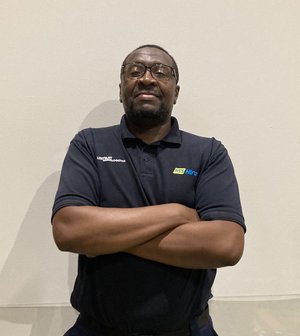
** TRIGGER WARNING ** This blog content contains references to alcoholism and inference of suicide.
We have taken great care not to provide specifics, however we feel it is still appropriate to advise you.
The theme for World Mental Health Day, held on 10 October 2024, is "Prioritising Mental Health in the Workplace".
This theme highlights the importance of creating supportive work environments that promote mental well-being and create cultures where workers can thrive.
To recognise the importance of the workplace in our mental wellbeing, Moses from the Cowley Distribution Centre shares his journey to positive mental health.
(A transcript of the video is available at the bottom of the page if you prefer to read)
Listen to Moses's story
Anyone can start a conversation about mental health
Everyone is encouraged to start a conversation with a colleague - it doesn't need to be to scary, you can simply start by asking them how their day is going? or what's going on for them right now?
There is a brilliant conversation framework put together by CALM that we've turned into a short animation which should help you feel more confident to have a supportive conversation.
Watch the video below to find out more about the ALAN model.
Support is available

We all struggle, if that's you, you're not alone and by finding the courage to open up you will help yourself to understand what you need to do next.
For a confidential conversation with a caring colleague you can reach out to a Mental Health First Aider directly, or by sending a message through Here4U, or you can call TELUS Health One on 0800 169 1920 to speak in confidence with a counsellor.
As a Unipart colleague, to actively support and promote good mental health you can download a FREE mental health coaching app called MyStrength.
All you need is the following code: G13047 to set up your profile.
Transcript of Moses' video
In the early 2000s, I was living in Oxford, scraping by as a casual worker in various industries. The work was inconsistent, but it paid enough for me to indulge in a few drinks at the local pubs on weekends. At first, it was just a way to unwind after a long week—a pint with friends, a laugh, a release. But slowly, the weekend habit crept into the weekdays. I began to drink more frequently, and before long, I found myself showing up to work under the influence.
My employers soon noticed my declining performance, and one by one, I lost my job. With no steady income, I turned to cheaper alcohol and tobacco to feed my growing dependency. My days blurred together in a haze of booze, and my life began to unravel. Friends who had once joined me for a drink distanced themselves, and I found myself increasingly isolated.
The situation worsened when my landlord grew tired with my inability to pay rent and my erratic behaviour, kicked me out. Suddenly homeless, I wandered the streets of Oxford, lost and hopeless. I spent my nights sleeping in a local park, the cold seeping into my bones as I clung to the bottle that had become my only companion.
One night, a community police officer found me in the park. He issued me a warning and told me to move on immediately, but he also directed me to a local homeless shelter. It was a small mercy, but one I was grateful for. At the shelter, I was given a meal and a bed, and for the first time in months, I felt a flicker of hope. Yet, I was still deep in denial about the extent of my problem, and the depression that had taken hold of me only worsened.
The drinking triggered severe epileptic seizures, and I found myself in the hospital regularly. Despite being on medication, I couldn’t stop drinking, and each seizure felt like another nail in the coffin I was building for myself. During this time, I experienced countless close calls—one of the most terrifying was when I had a near miss falling into the River Thames while drunk. A friend, equally inebriated, managed to pull me out, but I knew I was living on borrowed time.
Desperate for a fresh start, I moved to another city, but my drinking continued. I began consuming cheap ciders, and my health deteriorated rapidly. I contracted pneumonia, and the doctors warned me that I would die if I didn’t stop drinking. They also discovered that my eyesight had been severely damaged due to macular degeneration, leaving me partially blind. I was registered with RBIN, an agency for people who are severely sight impaired.
The combination of alcoholism and my declining health left me in a constant state of anxiety and despair. I would shake uncontrollably, suffer from insomnia, and hallucinate. A psychiatric nurse began seeing me regularly, offering talking therapy sessions that helped to some extent. During one of these sessions, he asked if I had suicidal thoughts—a question that forced me to confront the darkness I had been avoiding. It was then that I realised how deep I had sunk.
My girlfriend, who is now my wife, became involved in my recovery. She embraced me despite the mess I was in, offering unwavering support and encouragement. With her help, I began to make small changes—eating healthier, engaging with the local community, and trying to find some semblance of stability.
The real turning point came in December 2012, when I returned to Oxford to see my girlfriend and reconnect with old friends. It was Christmas Eve, and the festive atmosphere was in full swing. Booze flowed freely, but as I looked around at my friends, I realised that alcohol was at the root of all my problems. At that moment, I made a declaration—I would not drink anymore.
My friends didn’t take me seriously; they thought I’d fall back into old habits. But this time was different. I had seen the depths of what alcohol could do to a person, and I was determined to reclaim my life. I turned back to my faith, trusting God to guide me through the darkness. It wasn’t easy, but step by step, I began to rebuild.
Over time, my health improved. My vision, though never fully restored, became stable, and the seizures stopped. With the support of my wife, I found purpose in life again, filling the void that alcohol had left with hope and determination.
Today, I am living proof that there is hope for anyone struggling with alcohol dependency. It’s a difficult journey, but with faith, support, and a commitment to change, it’s possible to overcome even the darkest of times. My life now is a testament to the power of resilience and the belief that no matter how far you’ve fallen, you can always rise again.
Unipart has been helpful in my career growth and development, where I have seen great support as a warehouse operative and I am now undertaking an apprenticeship.
A testament to the resilience of the human spirit and the importance of support, faith, and determination in overcoming adversity. By sharing this, I am offering hope to others who may be struggling with similar challenges. It's wonderful to know how Unipart has provided me with opportunities for growth, especially through their commitment to equality, diversity, and inclusion.
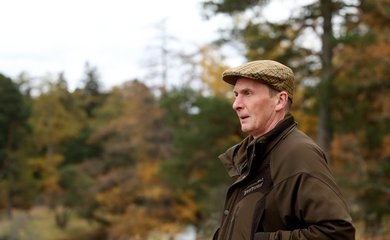
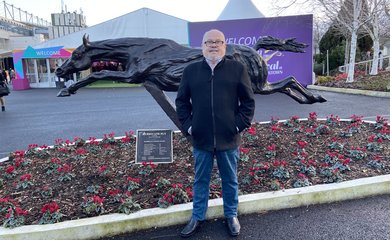
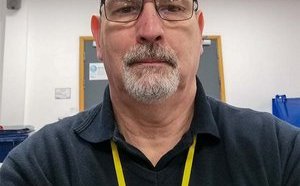
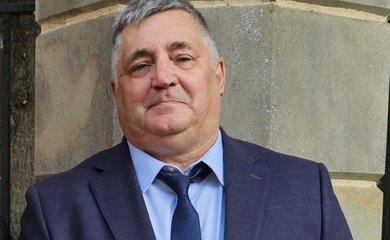
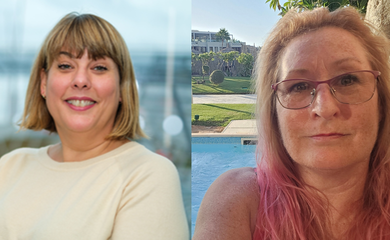
14 comments have been posted.
Nov. 8, 2024, 1:53 p.m. - Vicki Parsons ¶
Oct. 18, 2024, 12:43 p.m. - Suzanne Rowlands ¶
Oct. 14, 2024, 4:25 p.m. - Tris Maskens ¶
Oct. 15, 2024, 6:28 a.m. - Moses Kamau ¶
Oct. 14, 2024, 11:34 a.m. - Vaughan Reynolds ¶
Oct. 15, 2024, 6:32 a.m. - Moses Kamau ¶
Oct. 11, 2024, 7:22 p.m. - Neil Pinnell ¶
Oct. 15, 2024, 6:30 a.m. - Moses Kamau ¶
Oct. 11, 2024, 1:25 p.m. - Kyle Newall ¶
Oct. 15, 2024, 6:33 a.m. - Moses Kamau ¶
Oct. 11, 2024, 9:10 a.m. - Gareth Uden moderator ¶
Oct. 15, 2024, 6:34 a.m. - Moses Kamau ¶
Oct. 11, 2024, 9:04 a.m. - Claire Mawdesley ¶
Oct. 15, 2024, 6:36 a.m. - Moses Kamau ¶